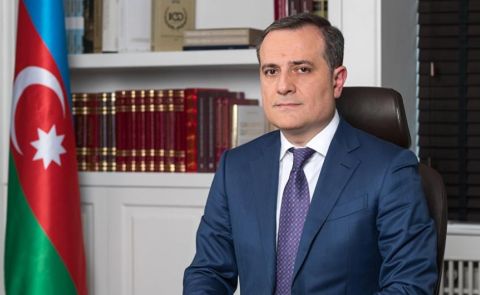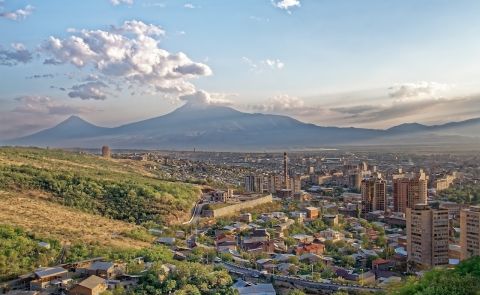
Airing of Russian opposition figure on public television sparks public debate in Armenia

On 2 July, Armenia’s public television prepared a report entitled “The Last and Main Day of the All-Russian Referendum: Opinion of the Opposition and Authorities” totalling 3 minutes in length. The video included an excerpt from a video message showing Russian opposition leader Alexei Navalny with the following message: “What is happening now is a big fiction that covers the main thing - zeroing Putin’s term.”
“As part of the changes, everything is advertised, even the rights of cats, but not zeroing Putin’s term. If you want to do something useful with your civic step, don’t go to the polls, but tell people the truth about what is really happening,” he said on air.
Navalny’s appearance on Armenian public television sparked large discontent from Armenia, as well as from Russia. Russian TV presenter Vladimir Solovyov, who is acknowledged to be one of the most influential propagandists in Russian media, heavily criticized this move from Armenia’s public television. “We love Armenia so much; it is a country friendly to us. But in a friendly Armenia, on Public Television, as part of a report on constitutional amendments, they show the Nazi Navalny, who called Armenians Khachis [offensive Russian term used for the people of the Caucasus], who hates Armenians, hates Armenia, despises it. And you are the Public Television of Armenia, take this person out and show him on your air? Well, you give,” he said.
Navalny in response stated that Solovyov “invented different things” that he allegedly spoke about Armenians. “And when we talk about the Nazis, you shot an entire film, glorifying Mussolini. And will you present me as the Nazi?,” Navalny said.
The Union of Armenians of Russia described the appearance of Navalny on the air of Armenian television as "a well-thought-out anti-Armenian action." “In our opinion, the Armenian leadership should give an assessment of the appearance on the state television channel, existing at the expense of taxpayers, of an Armenian-phobian Navalny...,” the Union said in a statement.
The leader of the opposition party Prosperous Armenia, Gagik Tsarukyan said that there has recently been “an artificial aggravation of anti-Russian sentiments” in Armenia, which were “actively being introduced by the active efforts of anti-Armenian and anti-state forces” in the country, adding that he will do his best to prevent such actions.
Tigran Urikhanyan, an independent deputy in Armenia’s parliament said the country’s Prime Minister Nikol Pashinyan responsible for Navalny’s appearance. “When a person who had introduced a parliamentary bill on Armenia’s exit from the Eurasian Economic Union, had considered the Collective Security Treaty Organization a nonsensical organization and had proclaimed Russia as the country to blame for the Four-Day Nagorno-Karabakh War of April 2016 came to power, it was necessary to realize that an Armenophobic nationalist like Navalny would appear on Armenian Public Television someday. It is clear that this is not only a manifestation of contempt towards a strategic partner, but also Armenia’s national and state interests, and balanced manifestation at that. And this is just the beginning,” he wrote on Facebook.
The vote on constitutional amendments in Russia began on 25 June and ended on the evening of 1 July. Russia's Central Election Commission said 78% of votes across the country were in favour of the constitutional changes and 21% were against with a turnout of 65% of Russia’s population. The changes included a critical mechanism that would allow Vladimir Putin to run for the country’s president again, guarantee minimum pension in Russia, ban same-sex marriages, include the “belief in God” as a core value, and emphasize the primacy of Russian law over international norms.
See Also


Nordic-Baltic Delegation Meets Armenian Leaders to Discuss Regional Cooperation and Peace

Azerbaijan Strengthens Energy Partnerships with Multiple Countries

BP Strengthens Presence in Azerbaijan’s Offshore Energy Sector

Netanyahu’s Letter to Aliyev: Mutual Trust, Solidarity Following Hamas Attacks, Facilitating Dialogue Between Israel and Türkiye

